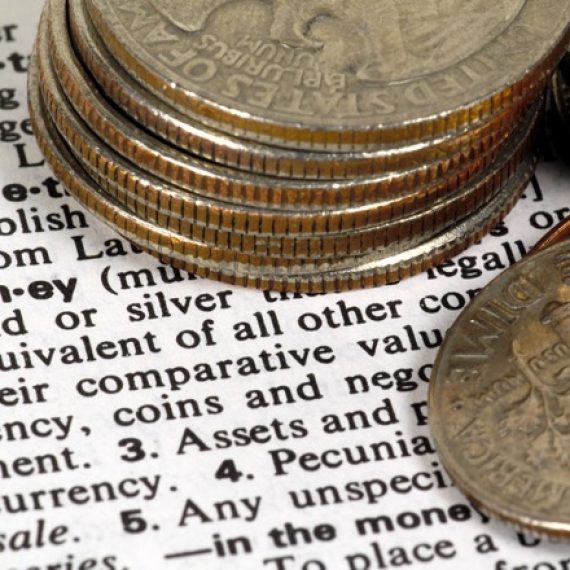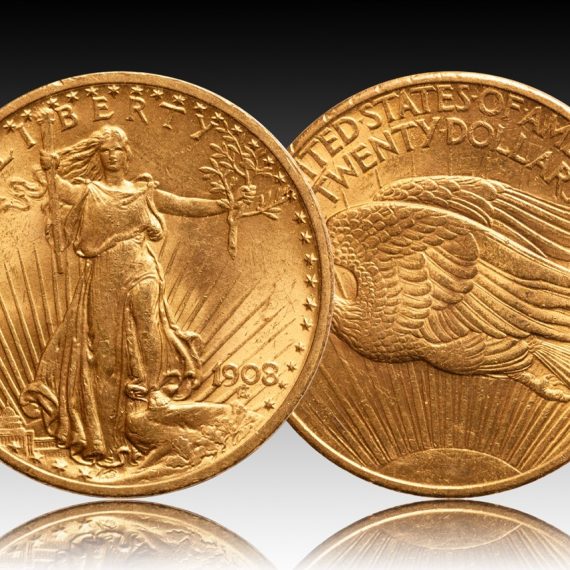June 7, 1999 – Many things in finance and economics are counter-intuitive. In fact, many things in life are counter-intuitive.
For example, when standing on a beach and looking out over the ocean toward the horizon, the earth really does seem to be flat. It takes a discerning individual to ferret out the truth about the shape of our planet, either through the rigorous application of mathematics and astronomy, or through some pragmatic testing and experimentation, like an around the world cruise.
Alternatively, an individual may choose the other option to reach a conclusion about the earth’s shape – by taking someone’s word for it.
Rather than spending the time and effort to learn the requisite skills and then make a well reasoned analysis, or to spend the time sailing the seven seas, an individual may simply choose to believe that the earth is in fact round. It is a conclusion reached not from his own analysis of the situation, but rather, by believing someone perceived to be reliable, for example, an expert in the physics of planet earth. Or perhaps the belief that one comes to hold about the earth’s shape may occur simply by following conventional wisdom. This choice is by far the easiest way to accept a new point of view. Namely, because popular opinion says that the earth is round, an individual seeking answers to the earth’s true shape merely adopts this thinking as his own.
The above observations also apply to other things that are counter-intuitive. And more to the matter at hand, the above observations can be made about the essential nature of money.
For example, the announcement by the Bank of England about its intent to dishoard most of its Gold reserve indicates that as far as money is concerned, the Grand Old Lady of Threadneedle Street is a flat-earth theorist, or at least that is what it wants the public to believe. It said that Gold is not useful, and much of the general public, choosing to follow conventional wisdom rather than their own analysis, have willingly accepted this notion.
What is even more bizarre is that the Bank of England says that it is possible to have too much Gold! The Gold as a percentage of its assets is too high, according to its own crazy thinking. Again, much of the public has responded, selling their own so-called unneeded Gold, and the Gold price has reacted with a thump.
Ignoring for the moment that by definition there must always be a buyer for every seller of Gold, I would like to analyze the Bank of England’s announcement. And I will do so with logic.
The application of logic to testing and examining the merit of conventional wisdom is not new by any means. There are demonstrated examples of how logic has been used to conclude that the earth is indeed round, even long before the invention of the telescope.
For example, in 2500 B.C., an inquisitive Egyptian questioned the conventional wisdom that the earth was flat. He set out to analyze the matter, using logic and some basic math. He did this by putting a vertical pole in the ground in Cairo at noon, and measured the angle of the sun. He then walked up to Alexandria, and took the same noontime measurement.
To his amazement, but I guess not to his surprise, he saw that the angles of the sun were different, proving to himself at least if not the world, that the earth was indeed round. By using the difference in these measurements of the sun’s angle at two locations, which he then related to the distance between Cairo and Alexandria, he calculated that the earth’s circumference was 25,000 miles. No computers, no round the world cruises, no satellite photos – just pure logic.
It is logic like this by which the value of Gold should be measured. There are many ways to do this, and one example to my mind proves that the Bank of England is sprouting nonsense. It is a matter of basic accounting.
Central banks, like the Federal Reserve and the Bank of England, hold two types of assets – tangible and intangible. These assets are ‘monetized’, i.e., turned into currency. In other words, the assets of central banks do not circulate as currency; their liabilities do. Dollars are therefore a liability of the Federal Reserve, and Pounds are a liability of the Bank of England.
This point is important to understand the fundamental error in the Bank of England’s pronouncement and to recognize that its actions are actually harmful – not beneficial – to the Pound. Namely, national currencies today are a liability of some financial institution, and therefore the value of any national currency is dependent upon unfulfilled promises. In the case of the Bank of England, these are the promises that the politicians and bureaucrats who manage that country’s currency will do nothing to damage the purchasing power of the Pound.
That promise is clearly worth little, given the loss of purchasing power of the Pound from inflation and debasement over recent decades, an ongoing process of currency destruction that still continues. But the picture is even worse. The promises made by the Bank of England are themselves dependent upon the promises of others.
The assets of the Bank of England consist mainly of intangible IOU’s. These IOU’s, and the promises conveyed by these debts owed to the Bank of England may or may not be credit worthy. The liabilities of the Bank of England (the British Pounds it issues) are only as good as its assets, and only one of these assets – its Gold reserve – is not dependent upon someone’s promise.
Look at it this way. What is more valuable? Which is the better asset? An ounce of Gold in your hand, or a promise by someone to put an ounce of Gold in your hand?
Or consider the following choice, which more accurately and completely describes the different essential nature of the two alternatives to the matter at hand. This choice also highlights what the Bank of England is really doing to debase the Pound. What is more valuable? An ounce of Gold in your hand, or a promise to put Dollars in your hand? The Bank of England is saying that instead of Gold, it would actually prefer to have someone’s promise to pay it Dollars (as well as Yen and Euro’s, because the Gold it will dishoard will be exchanged for these currencies as well).
Still not convinced about my argument? Let’s use another example. It is one in which we apply the same logic, but we apply it to an individual’s balance sheet and personal financial situation, so as not to get influenced by our own preconceived notions about the Bank of England and what it is saying about monetary theory.
Let’s create a fictitious balance sheet for an individual.
Assume for the sake of simplicity that he has only one asset, a house which he purchased for $100,000. In this case, he owns the house outright, with no contingencies. But if there were some contingencies, would this individual be as well off if he only owned someone’s promise that he owned the house?
In other words, let’s assume in this second case that this individual bought this house today, and that he wasn’t given the title to the house. Instead of clear ownership, the previous owner just promised to deliver the title upon demand of the new owner at some future date. Isn’t the new owner much worse off in this situation than in the previous case when he actually held the title? Of course he is, but the Bank of England would have you believe that there is no difference between these two completely different alternatives.
When viewed in this way, it is clear that the Bank of England is debasing the Pound. It is lowering the quality of the assets on its balance sheet, an action which is detrimental to the Pound. The inferior assets substituted in place of Gold make the Bank of England’s liabilities (i.e., the Pounds that it issues) less reliable and dependable.
This action also makes the Pound worth less in terms of Gold. Because there is less Gold as a reserve asset on the Bank of England’s balance sheet, and because a liquid tangible asset has been supplanted by IOU’s and the uncertain nature of the promises upon which the value of those IOU’s rest, the Pound is worth less in terms of Gold, not more.
Because the Pound is worth less in terms of Gold, the price of Gold in terms of Pounds should be rising. But we all know it isn’t. The price of Gold has been falling since the Bank of England announcement.
Is this price decline proof that my analysis is invalid? Or is it perhaps just an indication that Gold is becoming even more undervalued?
Clearly, to me it is the latter, because contrary to the Bank of England, I believe that any money dependent upon promises is inferior to Gold. Logic I think proves this point, and so does my experience. I have read too much monetary history, and in fact during my 50+ years of life, I have experienced
By saying that Gold has no usefulness as money, the Bank of England has said that ‘the earth is flat’. Each and every one of us who understands the essential nature of money can with reason and logic easily debunk the Bank of England’s flat-earth theory of money.

 My objective is to share with you my views on gold, which in recent decades has become one of the world’s most misunderstood asset classes. This low level of knowledge about gold creates a wonderful opportunity and competitive edge to everyone who truly understands gold and money.
My objective is to share with you my views on gold, which in recent decades has become one of the world’s most misunderstood asset classes. This low level of knowledge about gold creates a wonderful opportunity and competitive edge to everyone who truly understands gold and money.
